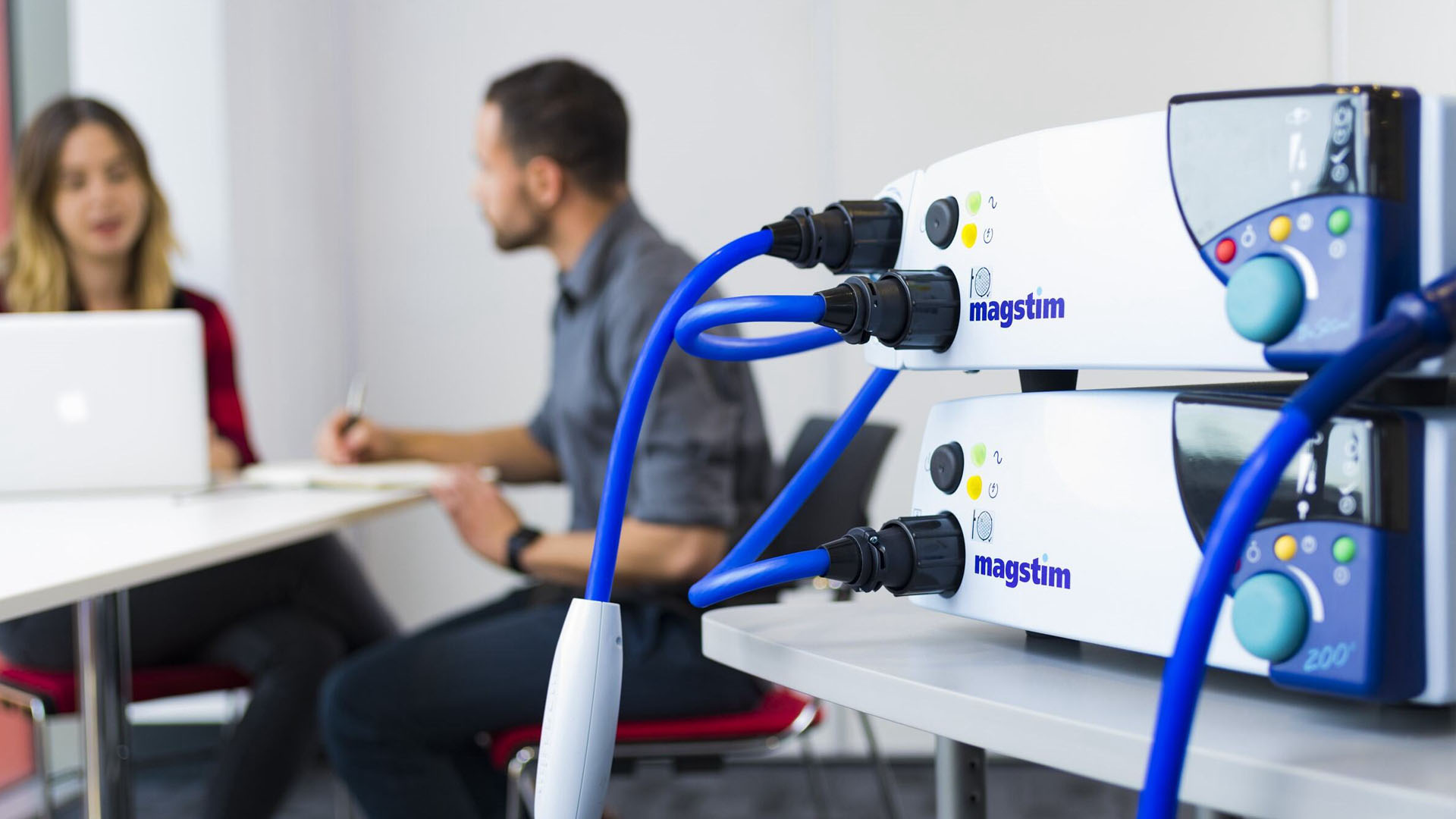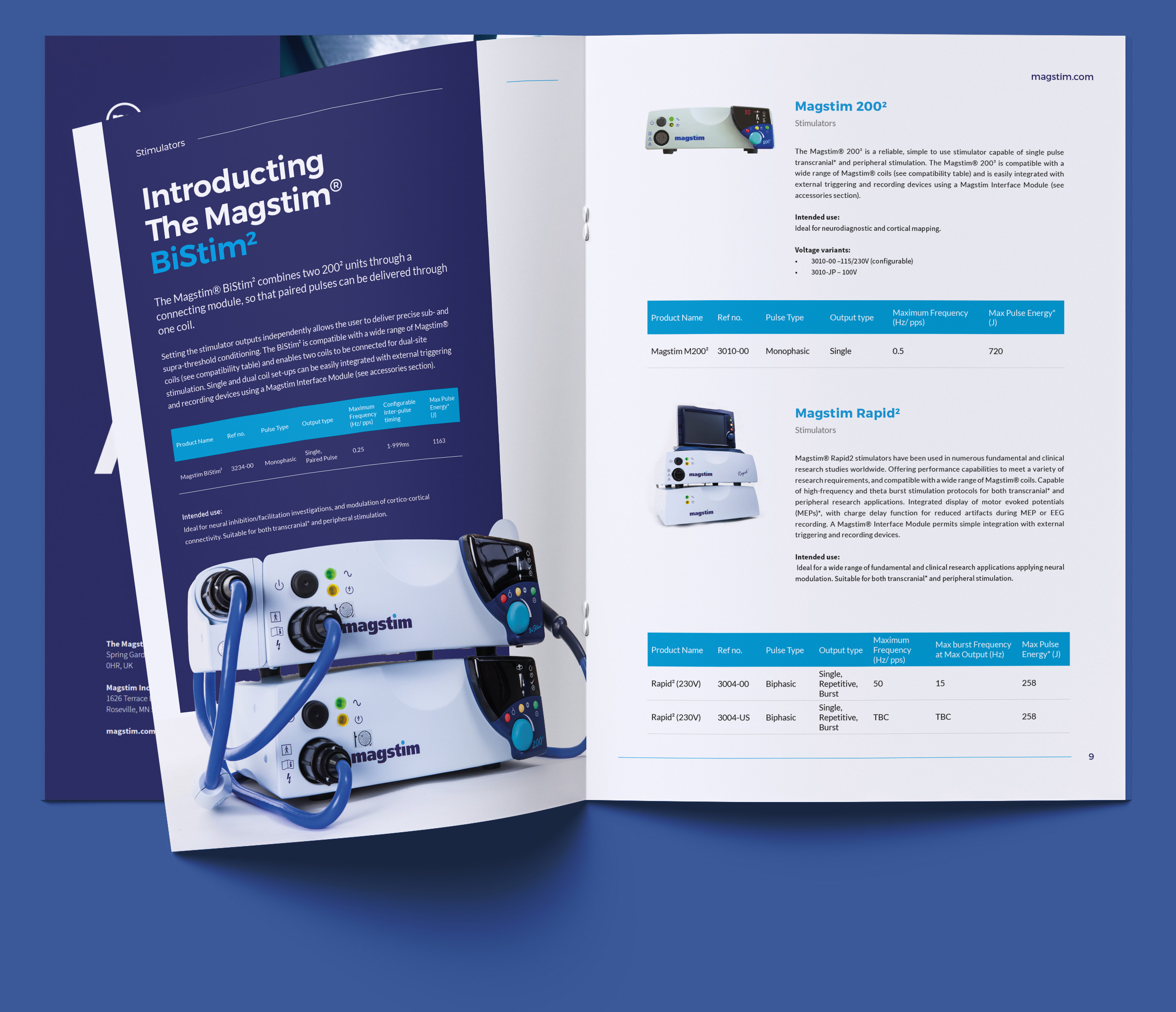
Integrated solutions for brain function
Multi-modality testing for brain function is becoming more common in neuroscience research. Magstim can provide integrated solutions using TMS, EEG and TDCS that offers numerous benefits, including comprehensive assessment, synergistic information, increased sensitivity and specificity, personalized treatment, enhanced localization and characterization, research advancements, and monitoring treatment response.
By harnessing the complementary strengths of different technologies, researchers can gain a deeper understanding of brain function and neurological disorders, leading to improved diagnosis, treatment, and patient care.
Different technologies that work together
Multi-modality testing allows for a comprehensive evaluation of brain function by providing insights from different perspectives. Each neuroimaging or neurophysiological technique offers unique information about brain structure, connectivity, and activity, leading to a more thorough understanding of neurological processes. Magstim has TMS/EEG/tDCS capabilities to provide researchers with assessment tools to further investigate.
Different modalities complement each other, providing synergistic information that enhances diagnostic accuracy and interpretation. For example, combining HD-EEG with TMS can help correlate anatomical structures with changes in brain activity, offering valuable insights into the underlying mechanisms of neurological disorders. Magstim offers a TMS BiStim Stimulator and HD-EEG solution for probing brain circuitry.
By combining multiple modalities, researchers can improve the sensitivity and specificity of brain function testing. Certain functionalities and characteristics may be more easily investigated with one modality than another. Integrating multiple modalities can help compensate for individual limitations and improve overall neurological interpretation.
Multi-modality testing facilitates personalized treatments by tailoring approaches to individual patients’ needs. By analyzing data from multiple modalities, researchers and clinicians can better understand the heterogeneity of neurological disorders and identify patient-specific biomarkers or predictors of treatment response.
Integrating multiple modalities enables longitudinal monitoring of treatment response and disease progression. By tracking changes in brain structure, function, and connectivity over time, researchers and clinicians can evaluate the effectiveness of interventions and adjust treatment strategies accordingly, aiming to improve patient outcomes. Techniques are also available to assess patients current state to give an eye on the prognosis towards their recovery.




